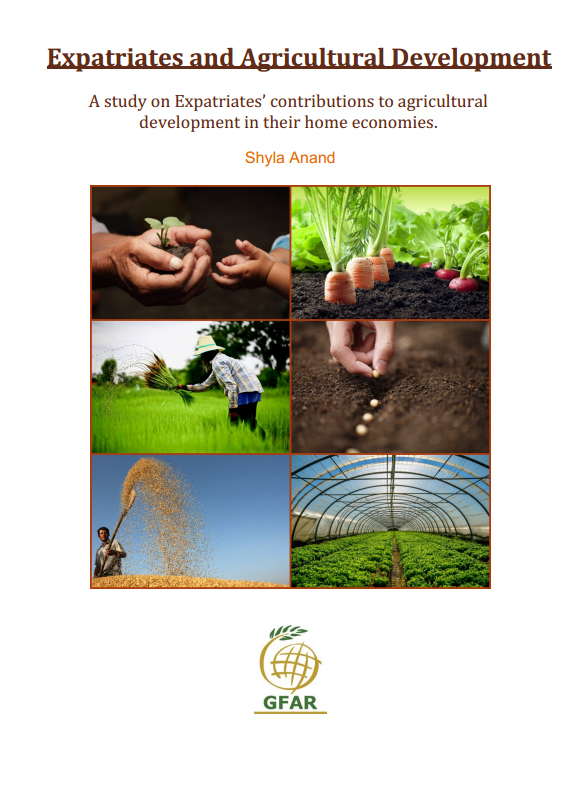
Shyla Anand, an intern with the GFAR Secretariat has completed a study on expatriates’ contributions to agricultural development in their home economies.
This study examined the ways in which expatriates have impacts on agricultural development, focusing on the financial, knowledge and labour effects in their home countries.
It revealed that there is very little public information available on expatriates and their contribution to agricultural development in their home countries. The study indicates that remittances by expatriates reducing rural poverty in their home countries result in agricultural development. Another channel is of family connections between expatriates engaged in farming in the country they have migrated to and relatives in their home countries. Expatriates returning and investing again in agriculture in their home countries is also a channel for agricultural development. These channels also lead to knowledge, skills and technology transfers. However, the impact of these channels is largely anecdotal and needs deeper study. Multinational Corporations employment also contributes to knowledge transfers through exposure and training. Expatriate scientists, technologists and professionals in fields related to agriculture have also been documented to contribute to agricultural development.
However, research has shown that repatriates face a number of obstacles when they return to their home countries e.g. India, such as the local work culture, resistance to change, lengthy bureaucratic processes, and a lack of suitable infrastructure. There are however some countries, including India and China, that have initiated action to utilize repatriate skilled professionals in agricultural development in their home countries.
Even with the limited information available, suggestions can be made for home countries of expatriates to make more efficient use of expatriation for agricultural development. Home countries can encourage use of remittances more productively in rural economies and expatriates to invest in rural infrastructure and education through lesser taxation, special bonds and other such instruments. As for expatriate professionals engaged in agriculture related activities, home countries can recognise and use more formally through short and medium term assignments their knowledge, skills and technologies for development. Home countries of Diasporas could contribute to formally channel and strengthen professional expatriate associations and similar bodies for development in their home countries. Home countries can also offer employment to professional repatriates and offer employment to retired repatriates with proven contributions in their fields to continue to contribute to the country’s development.
This study contributes to a deeper understanding of channels of international knowledge and skills transfer as also indicating how to improve and strengthen them for agricultural development. It also provides direction for more detailed studies on the roles expatriates may have on agricultural development in their home countries.
The full study is available here.
